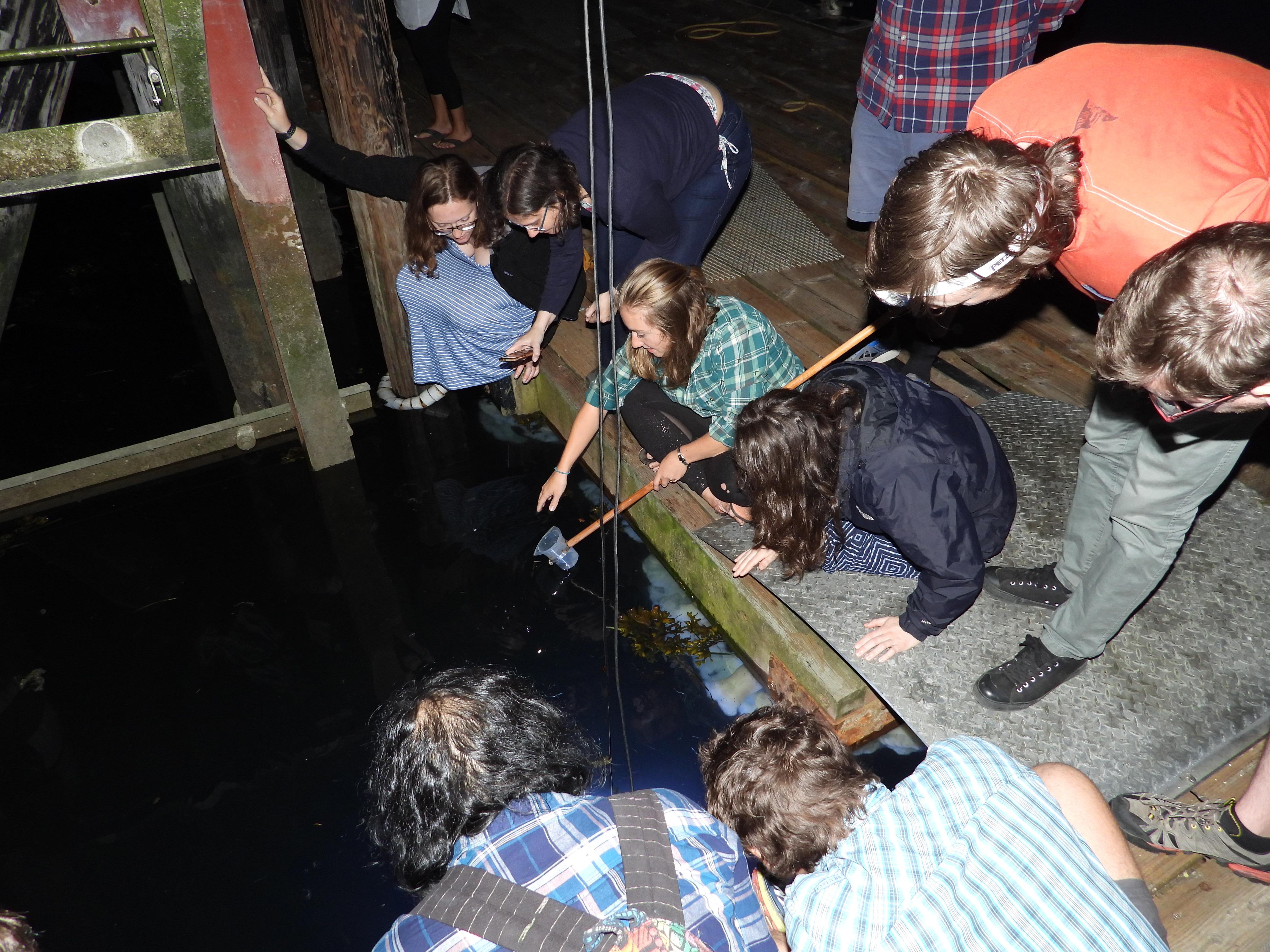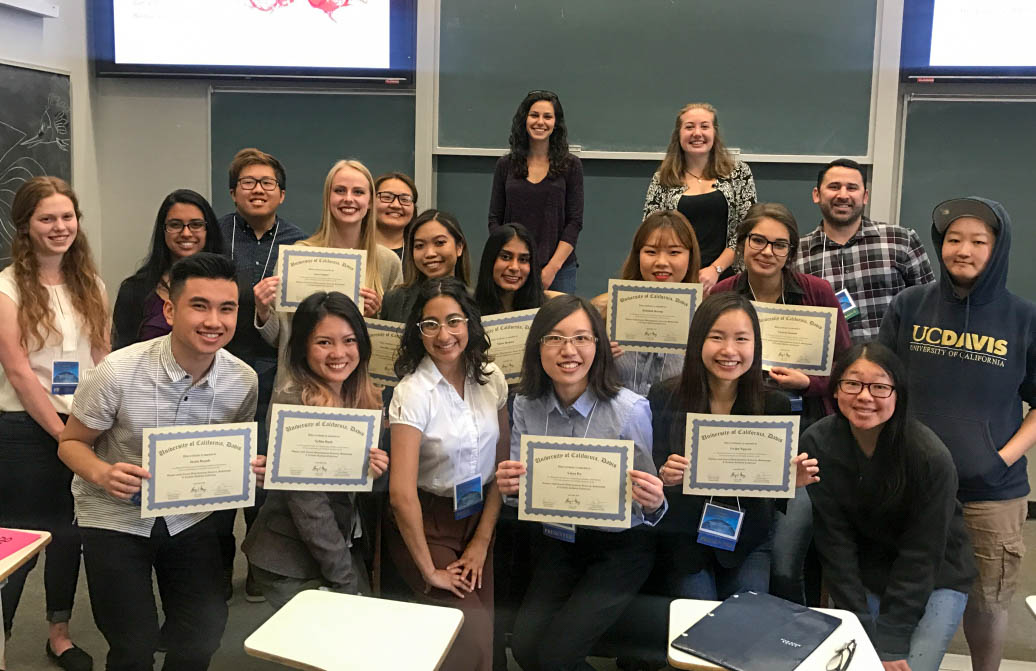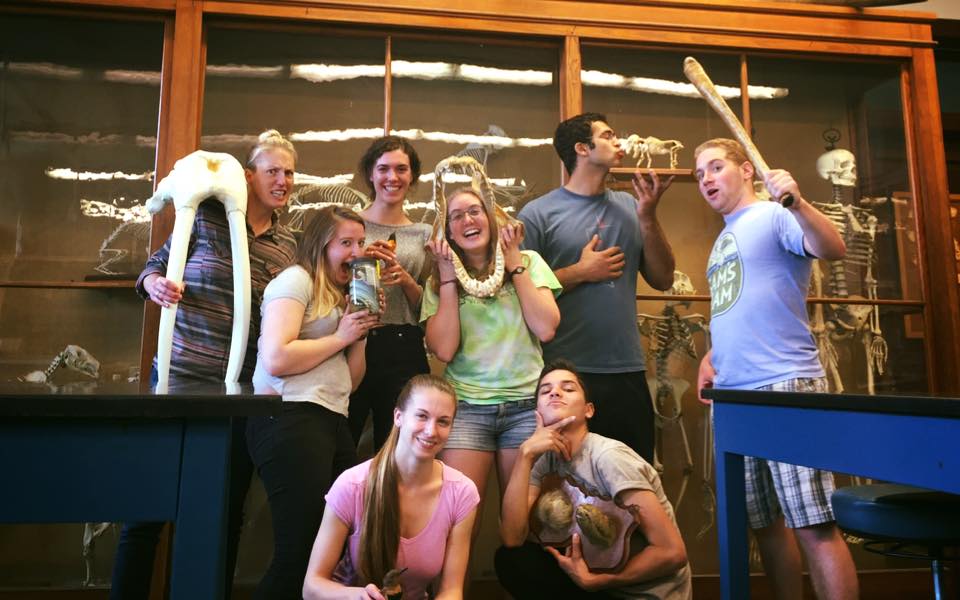Teaching
Course instruction
 EVE 105: Functional Anatomy of the Vertebrates
EVE 105: Functional Anatomy of the Vertebrates
Graduate TA & Laboratory Instructor | 2 quarters: 2019, 2021
UC Davis
Functional Anatomy of the Vertebrates is an intensive upper-division course at UC Davis that surveys vertebrate anatomy in depth with 6 hours of lab each week. As lead TA, I was responsible for every component of labs, including syllabus design, daily quizzes, two lab practical exams, preparing and leading dissections, and lab lectures. This course emphasized depth, learning circulatory, digestive, respiratory, and cranial nervous systems with 3 weeks of dissection in sharks before broadening our scope to see how the anatomy has changed across the vertebrate tree of life. The class focuses on understanding evolutionary change through the changes in homologous structures across vertebrates, and connecting form and function at multiple levels of organismal design. Overall TA evaluation (n = 24): 4.9/5.0.
When the course transitioned to online learning in response to the covid-19 pandemic, I designed two in-class projects that students executed, starting with designing their own hypotheses, learning to collect data from images and high-speed videos, and interpretation of their results in written form. The online structure of the laboratory was highly rated by students, who said that I "...wanted everyone to learn, went above and beyond," and that I was "One of the best TA's I've had." Overall TA evaluation (n = 14): 4.9/5.0.
 EVE 198: Biodiversity of Fishes: Methods & Experimental Design in Macroevolution
EVE 198: Biodiversity of Fishes: Methods & Experimental Design in Macroevolution
Course instructor | 3 quarters: 2017-2018
UC Davis
I co-instructed three quarters in a yearlong course series with Sarah Friedman and Chris Martinez. We brought 17 undergraduates through the entirety of the research process in a CURE (Course-based Undergraduate Research Experience). Using the then-developing Fish Shapes dataset as a basis, our students designed and executed their own projects. In the fall, we discussed how to read the scientific literature and form testable hypotheses, ultimately having the class choose and expand 2 student-submitted hypotheses. In the winter, we introduced the students to R and using the basics of phylogenetic comparative statistical methods, using their own data to learn these methods. In the spring, our students presented their projects to their family and friends at the UC Davis Undergraduate Research Symposium. I designed curriculum, organized projects, and wrote & presented lectures. The course culminated in taking students from the class to help us collect research data at the Natural Museum of Natural History in Washington, D.C.
We wrote a pedagogy paper on best-practices in running phenomic-scale CUREs: find it here in Integrative Organismal Biology!
General education & Introductory-level courses
EVE 12: Life in the Sea
Graduate TA | 1 quarters: 2020
UC Davis
I was the sole teaching assistant for a large, general education course focusing on marine biology. Tailored for students with no background in science, I led office hours, lectured, and graded exams with the goal of encouraging students to engage with the diversity of life through a mechanistic understanding of marine biology; and ultimately, promoting an appreciation for conservation of our natural resources among non-scientists. Overall TA evaluation (n = 52): 4.7/5.0.
BioSci 2B: Introduction to Biological Sciences: Principles of Ecology and Evolution
Graduate TA | 2 quarters: 2017-2018
UC Davis
As a teaching assistant for an introductory-level course in the biological sciences curriculum, I instructed and graded lab sections and proctored exams. Lab topics range from population and quantitative genetics with fruit flies to assessing diversity in different plant communities and predation experiments with Gambusia and mosquito larvae. Overall TA evaluation (n = 98): 4.9/5.0.
BioEE 1540: Introduction to Oceanography
Undergraduate TA | 1 semester: 2015
Cornell University
Cornell’s largest class, Oceanography, covers a range of topics from physical oceanography and marine biodiversity to climate change and its effects. As a TA, I served as the primary contact for a subset of students, set up exams, and helped grade the final writing assignment.
Other courses
 BioEE 2740: Vertebrates: Structure, Function, & Evolution
BioEE 2740: Vertebrates: Structure, Function, & Evolution
Undergraduate TA | 1 semester: 2016
Cornell University
Cornell's Vertebrate Evolution course focuses on exploring the breadth of vertebrate diversity through specimens and detailed comparative explorations. As a TA, I co-organized labs for an upper-division course covering the evolution and anatomy of vertebrates. My responsibilities included dissection and specimen preparation and management for laboratories, presenting specimens during lab sections, organizing review sessions, and proctoring lab practicals.